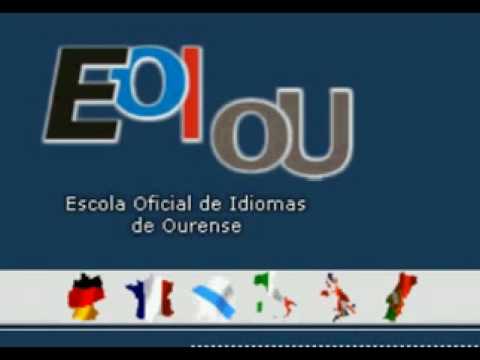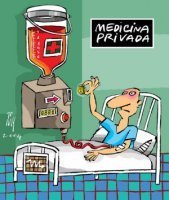
Así de difícil resulta intentar matricularse hoy en día en la Escuela Oficial de Idiomas de Ourense.
Comprendo que cuando se tiene a gente en la lista de espera te puedes permitir ser más exquisito al admitir al personal, comprendo que cuando la persona que tienes delante te trae sólo la mitad de los documentos necesarios para matricularse le digas que se dé media vuelta y traiga lo que le falta.
Todo eso lo puedo comprender.
Pero me parece que se están equivocando en el modo de tratar a los alumnos. Recuerden que si nos plantamos y decidimos no matricularnos en señal de protesta su trabajo será innecesario.
¿Les parece normal que a un profesor de instituto, que trabaja durante las mañanas y no puede abandonar su puesto de trabajo, se le niegue enviar por fax la información solicitada? Me obligan a faltar a mis clases o enviar a alguien a hacerme el recado. ¿¿De qué vale, entonces, que nos obliguen a preinscribirnos en internet, y a matricularnos por internet, dándonos incluso la opción de realizar el PAGO TELEMÁTICO??
No vale de nada, porque no te ahorra el engorro que supone hacer cola dos o tres horas para que la administrativa de turno te diga que la copia compulsada de tu titulación universitaria que entregas para matricularte en Galego Intermedio (Filología hispánica con una materia de Lingua galega, de 9 créditos) no es válida; o para que te diga que el documento con sello de registro en el que figura tu solicitud del certificado de exención de tasas por ser funcionario tampoco vale (¡¡SEÑORES, QUÉ NOS ESTÁ PASANDO!! ¿Acaso un funcionario de carrera deja de serlo de un año para otro? ¿Acaso no me matriculé hace dos cursos en Inglés avanzado 2 y entregué ese mismo certificado?)
Se merecían eso, que los alumnos que queremos formarnos en idiomas les diérmaos plantón, que nos matriculáramos por la UNED (que también podemos hacerlo y nos preparan igual o mejor), que no agacháramos la cabeza cada vez que se ríen de nosotros y nos dicen: "vuelva usted con la información que le falta".
Y luego los escandalosos criterios de corrección de los exámenes en algunos idiomas (sí, me refiero a INGLÉS).
No comprendo cómo se puede pedir a una persona que lleva 2 cursos estudiando inglés que responda oralmente a tantas exigencias. Para ellos corregir el Speaking es fácil, lo hacen con plantilla, y si no llegas a 15 cliks estás fuera, da igual que hablases con desparpajo o torpeza, te faltó tocar este tema o aquel otro.
No comprendo cómo se puede pedir a una persona que lleva 2 cursos estudiando inglés que redacte dos textos en un tiempo muy limitado, CONTANDO EL NÚMERO DE PALABRAS, sin detallar cuántas en ocasiones (el famoso escándalo de "aproximadamente 80 palabras", que se tradujo en una EOI en un 90 y pico por cien de suspensos - porque APROXIMADAMENTE para ellos significa un 15% arriba o abajo, pero nadie más lo sabía -, que fueron corregidos una segunda vez el día antes de que saliera en prensa un artículo que no los dejaba muy bien parados), sin cometer incorrecciones gramaticales, utilizando el vocabulario visto en clase, ajustándose al tema de la tarea... (¿¿Serían ustedes capaces de hacer eso mismo en su lengua materna en el tiempo estipulado??)
No comprendo cómo se puede pedir a una persona que lleva 6 cursos estudiando inglés que sea capaz de resolver un LISTENING que les parece realmente difícil a los propios profesores, con una gran variedad de acentos, temas, con preguntas trampa... No lo comprendo.
Y finalmente, tampoco entiendo cómo se puede pedir a cualquiera que estudie el tiempo que sea (entre 1 y 6 cursos) que resuelva cinco tareas de READING con un tiempo de 50 minutos o 60 para todas ellas, con textos que hay que unir, a los que hay que asignar el titular más adecuado, que tiene palabras que nunca viste...
No lo comprendo.
Me han hablado muy bien de los profesores de Galego y Alemán. A ver si es cierto. Ahora que logré matricularme de Galego y Alemán, esperemos que no sean tan duros, entre otras cosas porque quizá no dispongan de una lista de espera de alumnos a los que putear.




